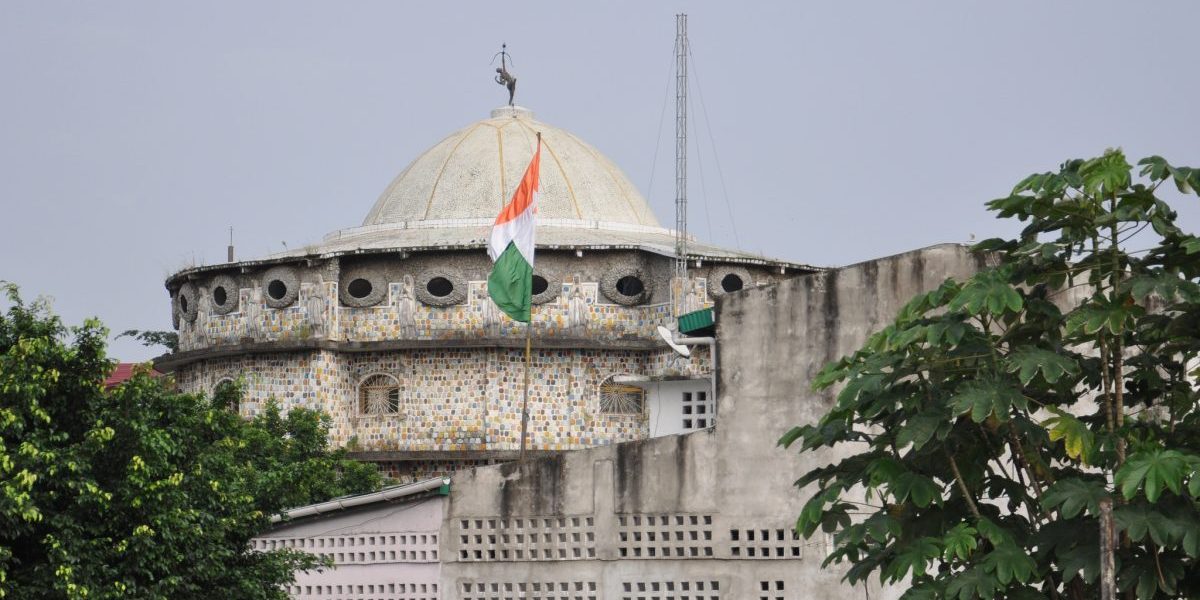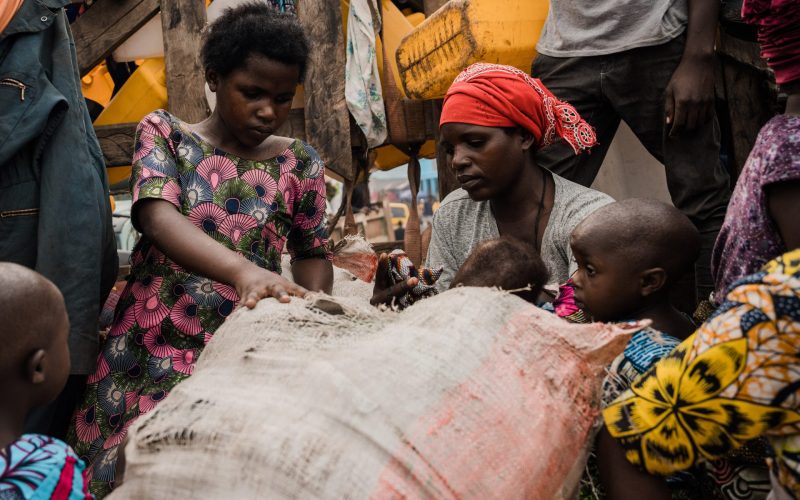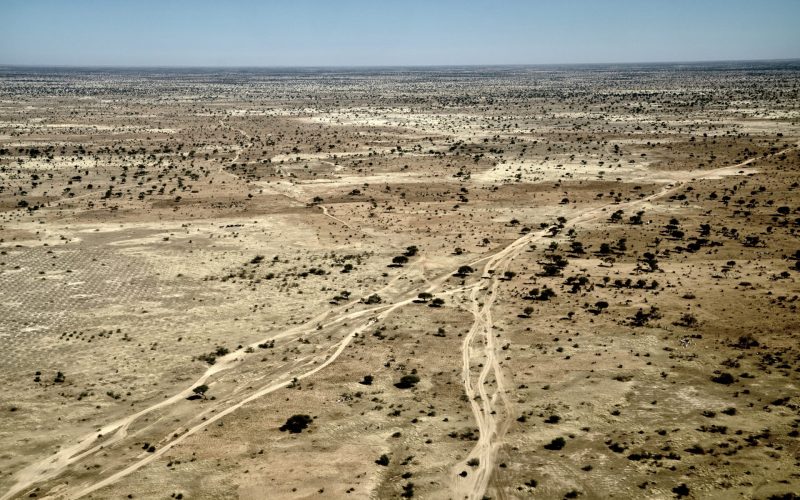But the insecurities over national identity and economic control that led to the civil war continue to polarise Ivorians on both sides of the north-south front line. Unless the UN and the African Union ensure that both sides address the underlying causes of this war, the hostility and distrust between them will render paper agreements worthless.
Under pressure from South Africa’s President Thabo Mbeki, the African Union mediator, Ivorian President Laurent Gbagbo has passed nationality and electoral laws as demanded by the Forces Nouvelles (FN) rebels and the powerful opposition leader Alassane Ouattara. Yet many Ivorians suspect both sides are still preparing for war.
After two-and-a-half years of ‘permanent crisis’, government and opposition have grown used to an uneasy status quo that is neither peace nor war. The economic nose-dive and insecurity triggered by the civil war have left the population yearning for peace, but mistrust of their opponents and a taste for power give the divided country’s leaders less incentive to break the political and military deadlock.
In line with the UN-backed peace process, the rebel forces have agreed to disarm by early September. Gbagbo’s ruling Ivorian Popular Front (FPI) is a minority party with little core support beyond the 20% of Ivorians from his western region and risks losing in fair elections. Meanwhile, the rebel leaders in the north are in no hurry to give up the power and wealth they have enjoyed since seizing control of 60% of the country in their 2002 rebellion.
Delayed or badly-flawed elections would allow time for both sides to rearm with funds from cash crop exports, despite a UN arms embargo. But the military stalemate on the front line may be hard to break. The danger for Ivorians is that the UN-supervised peace process could provide cover for a new but deadly kind of war, in which ethnic propaganda is a vital weapon and unarmed civilians are the targets.
Uneasy truce
The seeds of this conflict emerged in 1993 when the stable era of founding President Felix Houphouet-Boigny ended with his death. Despite three decades of prosperity, indigenous Ivorians in the south felt overrun by foreigners. Farmers and labourers from Burkina Faso, Mali and Guinea and traders from Lebanon were freely granted nationality and made up a third of the population. Common land in the west had been ceded to migrants to grow cocoa and coffee. Banking and industry was controlled by French firms.
The next president, Henri Konan Bedie, passed ‘Ivorianness’ laws that barred former prime minister Ouattara from challenging for the presidency because he was partly of Burkinabe descent. The laws also disenfranchised millions of Ivorians from the mainly Muslim north. Gbagbo’s presidency has further whipped up xenophobia through the ruling party’s rabble-rousing rhetoric and use of ethnic militias.
The peace deal President Mbeki and the UN are trying to keep on track has done little to ease the insecurity and mistrust that was deepened by civil war. The Linas Marcoussis Treaty, brokered by France in early 2003, ended the war on terms that the government bitterly resented. It gave territory and ministerial posts to the leaders of an armed uprising against an elected government. On his return from France, Gbagbo made it clear that he had signed under duress on foreign soil, with the remnants of his army too weak to reverse the losses to the rebels.
The ceasefire is enforced by UN and French forces along a buffer zone where the northern rebels’ advance had been halted, mainly by French intervention. Gbagbo agreed to a government of national unity with the rebels and with opposition parties, mainly Ouattara’s RDR, which has the backing of most northerners or Dioulas, and the PDCI, the former ruling party that is strong among the Akan ethnic group in east and central Côte d’Ivoire.
Gbagbo has sidelined the coalition government and runs the southern half of the country with a kitchen cabinet from his own party, including his wife Simone, who heads the majority FPI contingent in the National Assembly, former prime minister Pascal Affi N’Guessan and former defence minister Bertin Kadet. His advisors have set up and armed pro-Gbagbo militia groups recruited from unemployed youth – in Abidjan and the west – who openly challenge the peace deal and operate either in defiance or with tacit support from the uniformed army and police.
The rebels have held up disarmament, citing the militias’ threat and the failure of the FPI-dominated parliament to reform discriminatory citizenship laws and enact an independent electoral commission. The rebels have consolidated their power by levying unofficial taxes and extorting money from civilians, resupplying their army and smuggling commodity exports through Burkina Faso. Local FN commanders, some of whom were of low rank before the rebellion, operate more like war lords than army officers and risk reprisals if they disarm.
The opposition parties demand fair elections, but the government accuses Ouattara, who fled into exile in 2002, of backing the rebellion. This has not been proved, although one of the rebels’ first demands was that he be allowed to run for the presidency. Under instruction from Mbeki, Gbagbo lifted this ban in May.
Arming for peace?
The government broke the ceasefire last November in an attempt to finish off the FN forces with artillery and air strikes on their northern bases. They also hit French targets, and France responded by wiping out the small Ivorian air force.
The deadline for disarmament and reintegration of the rebel army is only three weeks before the presidential election is due on 30 October, raising doubts whether free and fair polls are feasible. Observers expect a dangerous confrontation if elections lapse. Gbagbo says that, under the constitution, the incumbent remains head of state even after his mandate has expired until elections can be held. The rebels and the opposition say his mandate expires at the end of October and he must step down.
While President Gbagbo was in Pretoria last month insisting on rebel disarmament, the UN found government forces unloading 22 military jeeps and some crates, whose cargo has not been revealed, at the port of Abidjan. The UN says it is investigating this among a series of arms embargo breaches by both sides. The UN mission’s military commander, General Abdoulaye Fall, has also rejected as incomplete the arms inventory submitted by the Ivorian armed forces, which listed only small arms and omitted the government’s heavy weaponry.
The international community knows the potential sources for illicit weapons and military support for both sides in this conflict. Foreign intelligence reports say there are frequent flights to Abidjan with unexplained cargo from Angola; Eastern European mercenaries pilot the Ivorian air force; Israeli intelligence officers in Abidjan are believed to be intercepting telecommunications traffic. The International Contact Group of nations who have supported the Liberian peace process have reported that the Ivorian government has hired Liberian mercenaries to bolster pro-government militia groups in the lawless west of the country, a flashpoint for land disputes between the indigenous Bete and Guere and Dioula migrants from the north. President Mbeki has asked the UN Security Council to withhold the threat of targeted sanctions against defaulters, but this is the most powerful way for the UN to apply pressure on both sides in the peace process. Diplomats in Abidjan argue that missed deadlines on key actions by signatories should trigger automatic sanctions such as travel bans and freezing of offshore assets.
Patriots and xenophobia
The government position has hardened after Gbagbo reorganised the security forces in Abidjan under a commander with close links to violent youth militias and imposed martial rule in the Douekue district, where dozens of civilians died last month in sectarian violence. The chief military spokesman, Colonel Jules Yao Yao, was dismissed last month after contradicting claims by Gbagbo’s advisors that sectarian clashes in the west were caused by the rebels and Ouattara. He was later detained and beaten up after visiting the French embassy. An armed colleague arrested with him died days later. A confidential UN report, leaked to the media in July, says the massacre in Douekue was the work of Liberian mercenaries hired by a a pro-Gbagbo militia leader.
The paranoia on both sides has parallels with the build-up to the Rwandan genocide. If disarmament and the election process stall and the government army cannot defeat the rebels, opposition groups fear that Gbagbo will rely increasingly on the militias, swelled by high unemployment among the Ivorians under the age of 24 who make up two-thirds of the 18 million population. The largest militia group, the Young Patriots, claims to have saved Gbagbo from attack by French troops in Abidjan in November. As the International Crisis Group warned in its latest report: ‘With each cycle of violence in Côte d’Ivoire, the killing gets worse.’








